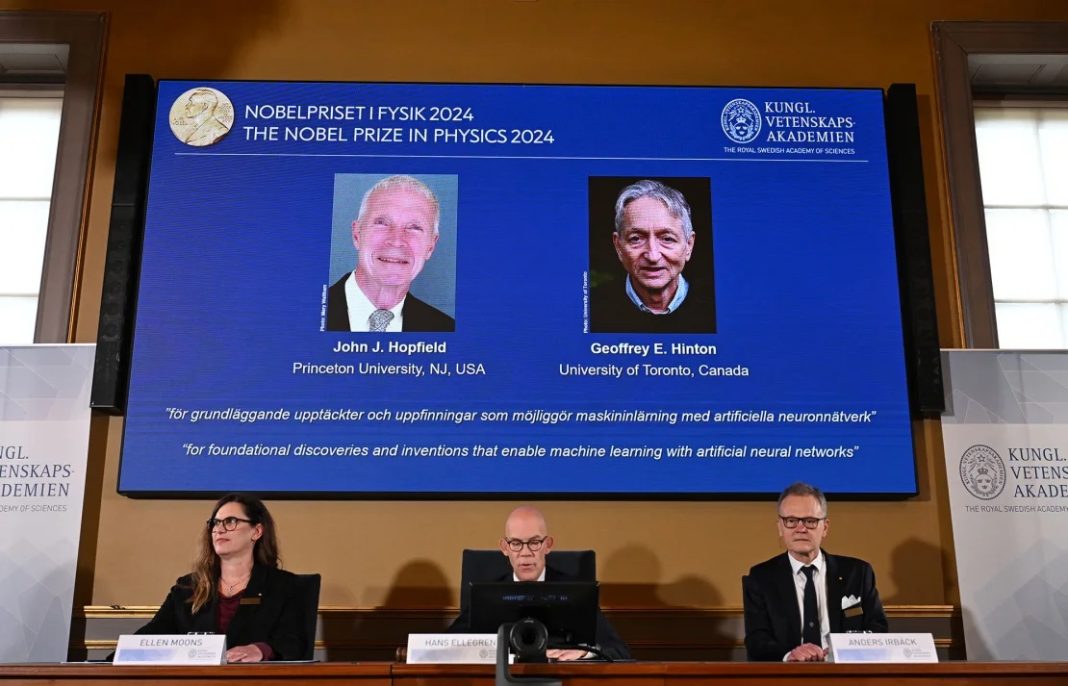STOCKHOLM, Sweden — The 2024 Nobel Prize in Physics has been awarded to John Hopfield of Princeton University and Geoffrey Hinton of the University of Toronto for their groundbreaking discoveries that have enabled machine learning with artificial neural networks.
Their pioneering work has laid the foundation for many of today’s artificial intelligence (AI) technologies.
In a statement released on Tuesday, October 8, 2024, the Nobel Committee praised the laureates for their contributions to advancing machine learning, stating, “Although computers cannot think, machines can now mimic functions such as memory and learning. This year’s laureates in physics have helped make this possible.”
The prestigious award, recognized as one of the highest honors in science, includes a prize of 11 million Swedish kronor (approximately $1 million).
The committee highlighted the critical role that Hopfield and Hinton’s research has played in the rapid expansion of machine learning over the past two decades.
“Using fundamental concepts and methods from physics, they have developed technologies that use structures in networks to process information,” the committee explained.
This research has led to a transformative leap in how machines process data, enabling innovations that touch everyday products and services around the globe.
Geoffrey Hinton, often referred to as the “godfather” of AI, expressed surprise and gratitude for the award. “I was flabbergasted,” he said in a phone interview after the announcement.
Hinton, who has been a key figure in AI development for decades, discussed the far-reaching implications of the technology he helped create.
“AI will have a huge influence on our societies,” he remarked.
“It will be comparable with the industrial revolution. But instead of exceeding people in physical strength, it’s going to exceed people in intellectual ability. We have no experience of what it’s like to have things smarter than us.”
Hinton further predicted that AI would revolutionize fields like healthcare, driving massive improvements in productivity and outcomes.
However, he also sounded a note of caution about the potential risks associated with the technology.
“We also have to worry about a number of possible bad consequences, particularly the threat of these things getting out of control.”
John Hopfield, whose work has been equally influential, has been credited with early foundational research in neural networks, which helped lay the groundwork for the machine learning revolution.
Together, their contributions have unlocked vast potential for AI, powering technologies that shape industries, healthcare, and communication.
The Nobel Prize in Physics, awarded annually, honours those who have made significant contributions to humanity’s understanding of the natural world.
With this year’s focus on the intersection of physics and artificial intelligence, Hopfield and Hinton’s work stands as a testament to the profound impact that theoretical discoveries can have on the modern world.
As AI continues to evolve, the influence of these two scientists will undoubtedly remain central to both the opportunities and challenges that the future holds.







